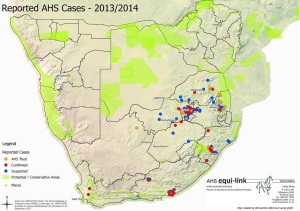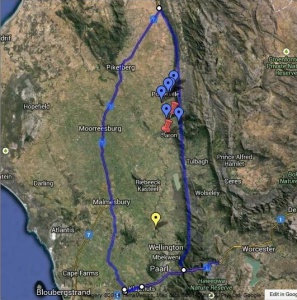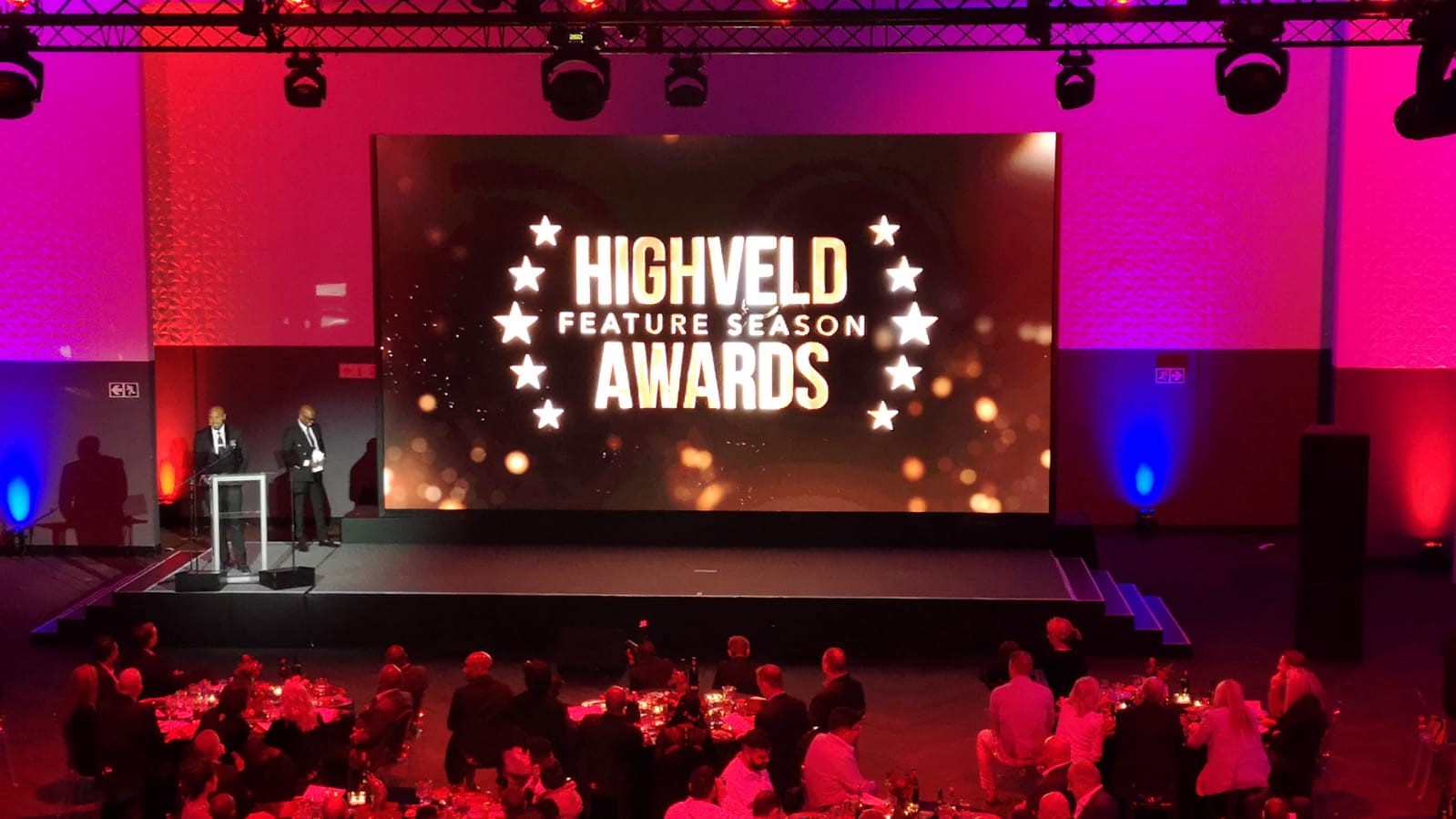
AHS Outbreak Map – 2 April 2014
In a press release issued earlier today, the Chief Director of Veterinary Services, Dr GSG Msiza, confirmed that the Western Cape outbreak that started in Porterville has spread.
Three horses have tested positive for African Horse Sickness on a property near Wellington in the Boland. The affected holding falls within the AHS Surveillance Zone.
As a precautionary measure an extension of the current containment zone as defined in the order dated 10 March 2014 relating to AHS cases in Porterville has been declared.
No horses, mules, donkeys or zebra (equids) may be moved within, into, out of or through the zone described below:-

Newly extended AHS containment zone
Eastern Boundary: The Piekenierskloof pass in the North along the Olifantsrivier mountain range south to the Grootwinterhoek mountains and south to Gouda along the Obiekwa mountains. Extending further south along the Limiet mountain range and ending at the intersection between the N1 highway and the Hawequas mountain range at the Huguenot tunnel.
Southern Boundary: The N1 highway between the Huguenot tunnel and the intersection of the N1 and the R304 near Joostenberg.
Western and Northern Boundary: The R304 from the intersection of the N1 and the R304 near Joostenberg extending North West to Klipheuwel. The R302 extending between Klipheuwel and Malmesbury and then the N7 highway between Malmesbury and the Piekenierskloof pass in the North East.
This movement ban is in force with immediate effect and will remain in place until repealed by the Veterinary Services of the Western Cape Department of Agriculture.
Movement of horses via the N7, R302, R304 and N1 on the boundary of this zone will be allowed, but should be restricted to daylight hours without any stopping or deviation.
All horses within the containment zone must be stabled as far as possible from 2 hours before sunset until 2 hours after sunrise. In addition they must be treated with effective insect repellents to prevent midges feeding on them.
All occurrences of horses becoming sick or dying must immediately be reported to the closest State Veterinarian (see contact details below) in order for Veterinary Services to investigate the possible cause of such disease or death.
Horse owners in the AHS Surveillance Zone need to note that no systematic vaccination against AHS is allowed in this zone. Permission to vaccinate must be obtained from the Western Cape State Veterinary Service in the prescribed format – please contact State Vet Boland in this regard.
Infringement of any of these conditions may lead to prosecution in terms of the Animal Diseases Act.
Contacts: State Veterinarian Malmesbury – Dr S Davey: 022 482 1380 / 083 642 0603
State Veterinarian Boland – Dr G Buhrmann: 021 808 5253 / 083 642 0602
State Veterinarian Epidemiology – Dr J Grewar: 021 808 5056 / 083 642 0610








